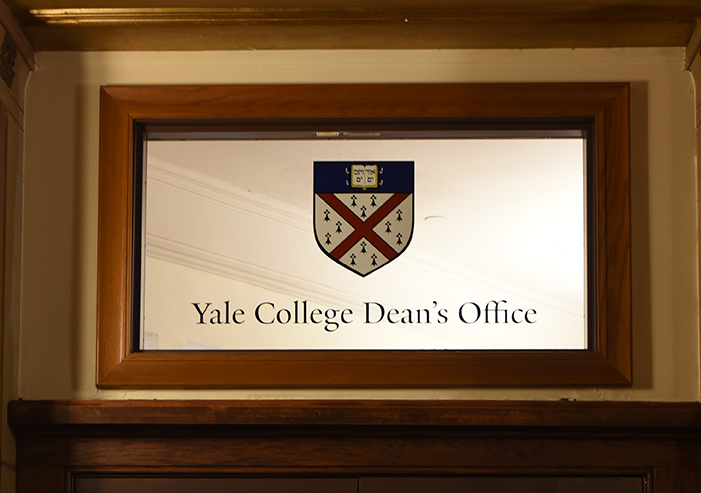
Yale was awarded an Association of American Universities STEM Education Network Mini-Grant last week to fund specific initiatives that will improve undergraduate STEM education.
This grant — a $10,000 award per year for the next two years — was given to 12 AAU member schools around the country. At Yale, the funding will be used to develop a more comprehensive and structured peer advising system and to improve on the Online Experiences for Yale Scholars program, also known as ONEXYS, mathematics professor James Rolf said.
Rolf collaborated with Executive Director of the Center for Teaching and Learning Jennifer Frederick GRD ’99, Senior Associate Dean of Undergraduate Education Pamela Schirmeister ’80 GRD ’88 and Assistant Dean of Science and Quantitative Reasoning Carl Hashimoto GRD ’86 to apply for the grant last December.
“It has probably never been more important than it is today to educate people who are scientists or majoring in some other field to know at least enough about science literacy so that they can make decisions for themselves — as consumers, as patients, as voting citizens, as people in the world,” said Frederick, who directed Yale’s Center for Scientific Teaching before it was absorbed into the CTL.
The AAU intends for the award to be used as seed money to either start new programming or extend existing efforts to enhance undergraduate STEM education, both of which Yale will do with the grant, Rolf said.
The first of the two main initiatives is to support a new peer advising system. In recent years, peer advising has become a greater resource for Yale students, but the AAU grant will help implement some structure to this advising system, Frederick said. For example, the money from the grant will be used to pay peer advisers as student employees. Strengthening peer advising will also be essential for students in larger departments in which the directors of undergraduate studies cannot effectively advise all majors.
The second initiative will involve improving the ONEXYS program. Overseen by Senior Associate Dean Burgwell Howard, this online summer program provides incoming Yale freshmen with quantitative reasoning instruction through video and practice content. Students also interact with Yale professors and have a “coach,” an upperclassman who provides both math guidance and general advice on the transition to Yale, according to the ONEXYS website.
“The purpose of the program is to prepare students to succeed in their [quantitative reasoning] courses at Yale and also to succeed in the transition to Yale — just to be comfortable and feel like they belong here,” Frederick explained. As the program’s lead professor, Rolf echoed this sentiment, noting that the academic backgrounds of incoming freshmen vary significantly.
Rolf said that in the three years since the program began, the ONEXYS team has seen promising results in not only participants’ summer learning, but also their academic performance compared to other students’ during the school year.
In the wake of a recent partnership with the Physics Department, the program hopes to, in its fourth summer, more effectively assist current students who plan to take PHYS 170 or PHYS 180 — introductory physics classes for students with some background in physics. Using the AAU grant, the team will create tailored and unique content and support for these students in the ONEXYS program, Rolf said.
He added that many other institutions around the country are interested in Yale’s summer bridge programs. Several other universities have implemented similar programs, but because of the high cost in bringing students to campus, Yale’s online program carries several advantages, as it is less expensive and capable of reaching more students.
“What we did was glue summer bridge programs and online learning together, basically,” Rolf said. “Other schools are paying attention to this, so Yale is, effectively, a step or two ahead of most other institutions in this area.”
The grant enables the creation of a network of institutions that collaborate on these educational initiatives, sharing video content, quiz content and online applications, Rolf added.
These partnerships between Yale and other colleges have already begun, Rolf said, adding that he has been in contact with Carleton College and the University of Notre Dame since last summer. Additionally, he said he hopes to work with the Liberal Arts Consortium for Online Learning — which includes schools such as Williams College, Swarthmore College and Carleton College — and nearby schools, including the University of Bridgeport and Housatonic Community College, to enhance online teaching.
“Many institutions are concerned about the same thing: making sure their students arrive well-prepared,” Frederick said. “So, we are hoping to build some partnerships with other institutions and bring them here to have a mini-conference or meeting to discuss what they are doing and share what we’re doing.”
The CTL and the Yale College Dean’s Office will match the AAU funding with an additional $26,000, she added.







